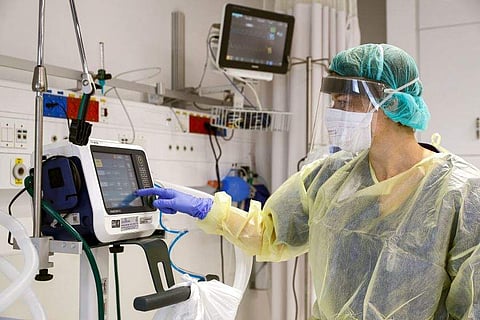AI can predict Coronavirus patients' risk, their need for ventilators or intensive care
As companies the world over commit to make ventilators to meet the demand, researchers are now developing computer models based on artificial intelligence (AI) that calculate the risk of an individual patient's need for a ventilator or intensive care.
Several non-health companies are now scrambling to produce vents as more and more critical COVID-19 cases are showing up globally.
"With these AI models, hospitals will be able to know - for example - that 40 per cent of their 300 hospitalised patients will probably require a ventilator within one week. This allows them to plan and deploy their resources in the best possible way," said Mads Nielsen from the University of Copenhagen in Denmark.
According to the researchers, algorithms will harvest vast amounts of data from multiple sources.
The data consists of X-rays, tests and measurements taken of patients at the time of their admittance to the hospital, along with their electronic health records.
"All data will go to a supercomputer where, within minutes, our model calculates how likely a specific patient is to require a ventilator, and how many days will go by before such a need arises. That's our goal," Nielsen said.
Although the models will not be used as a basis for treating individual patients, they will be used as a planning tool that can still make a big difference for hospital staff.
In doing so, doctors hope to identify shared traits among the most severely affected patients. This may turn out to be the number of white blood cells, the use of certain pharmaceuticals or something else.
Researchers said they are aware of certain things that increase risks, such as age, smoking, asthma and heart problems, but there are other factors involved.
"After all, we hear about young people who end up on ventilators and older people who do well without understanding why. So let's get the computer to find patterns that we aren't able to see ourselves," explained Espen Solem, Chief Physician, Bispebjerg and Frederiksberg Hospitals.
These patterns will be compared with information from newly hospitalised patients.
"We hope that our models will be able to be used during this initial wave of coronavirus infections, otherwise, they will be beneficial during the second wave that we anticipate in autumn," Nielsen noted.


